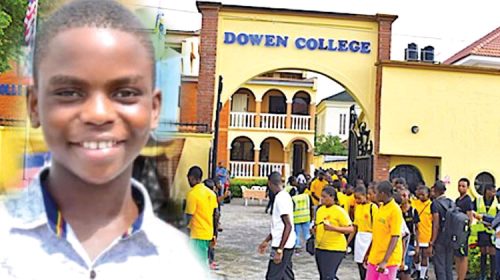BIG STORY
Inquest: Dowen Nurse Denies Contact With Sylvester, Pathologist Affirms Autopsy Reports
-

 BIG STORY4 days ago
BIG STORY4 days agoJUST IN: US Clarifies New Visa Rule For Nigerians, Cites Global Security Standards
-

 BIG STORY5 days ago
BIG STORY5 days agoREVEALED: Trump’s Visa Clampdown Linked To Nigeria’s Refusal To House Asylum Seekers — TheCable Report
-

 BIG STORY1 day ago
BIG STORY1 day agoBREAKING: Federal Government Declares Tuesday Public Holiday To Honour Buhari
-

 BIG STORY5 days ago
BIG STORY5 days agoLagos Steps Up: Wahab’s Cleanup Blitz And Plastic Ban Herald A New Environmental Era — By Babajide Fadoju
-

 BIG STORY5 days ago
BIG STORY5 days agoNigeria Won’t Bow To US Pressure To Accept Venezuelan Deportees — Foreign Affairs Minister Tuggar
-

 BIG STORY10 hours ago
BIG STORY10 hours agoAmaechi Wears Turban To Buhari’s Burial In Daura
-

 BIG STORY2 days ago
BIG STORY2 days agoOsun 2026: Aregbesola Vows To Unseat Adeleke, Says ADC Will Win Guber Election
-

 BIG STORY3 days ago
BIG STORY3 days agoDETAILED: Coroner Orders Prosecution Of Auxiliary Nurse Over Mohbad’s Death, Probe Into Police Inaction























